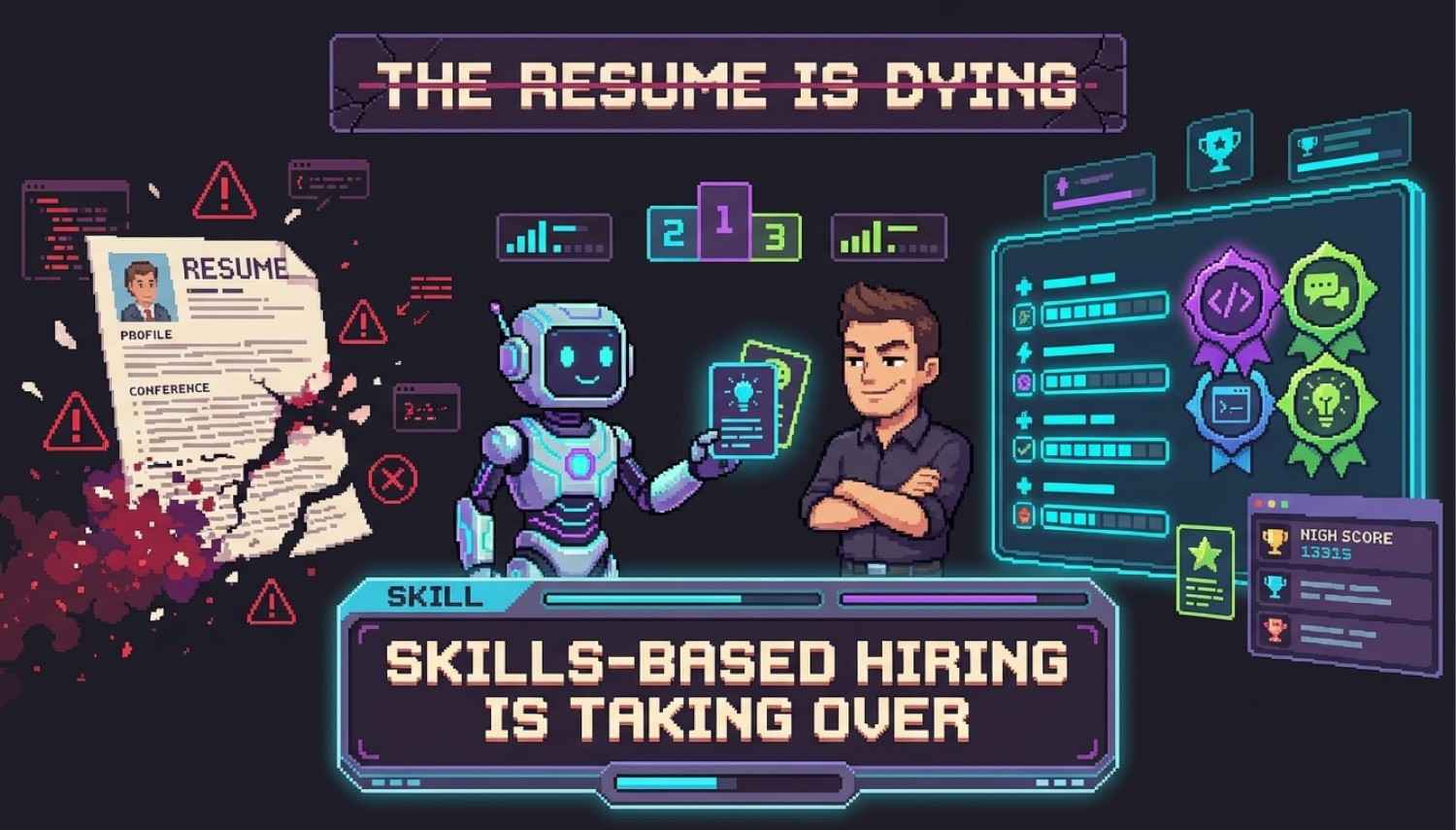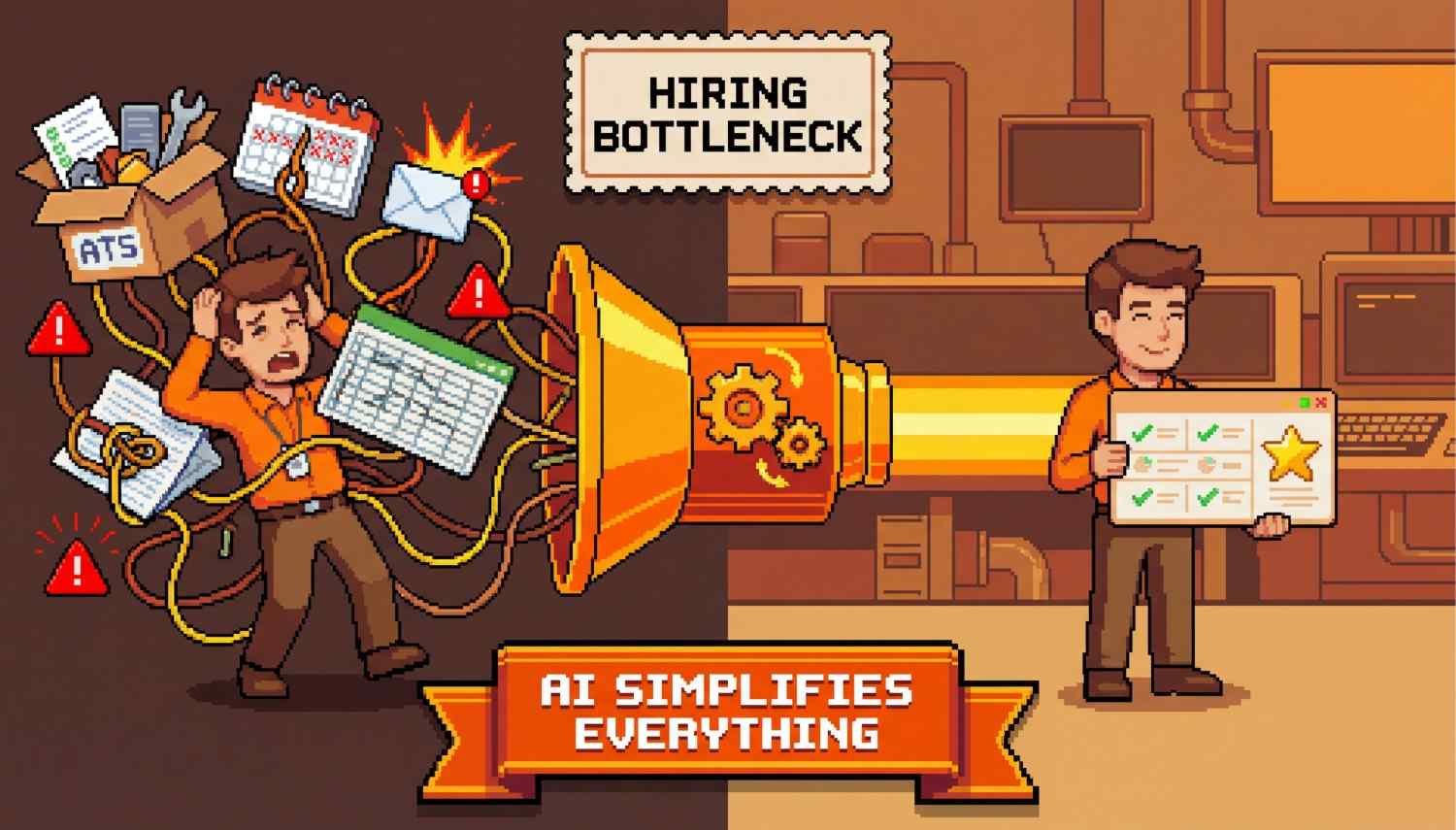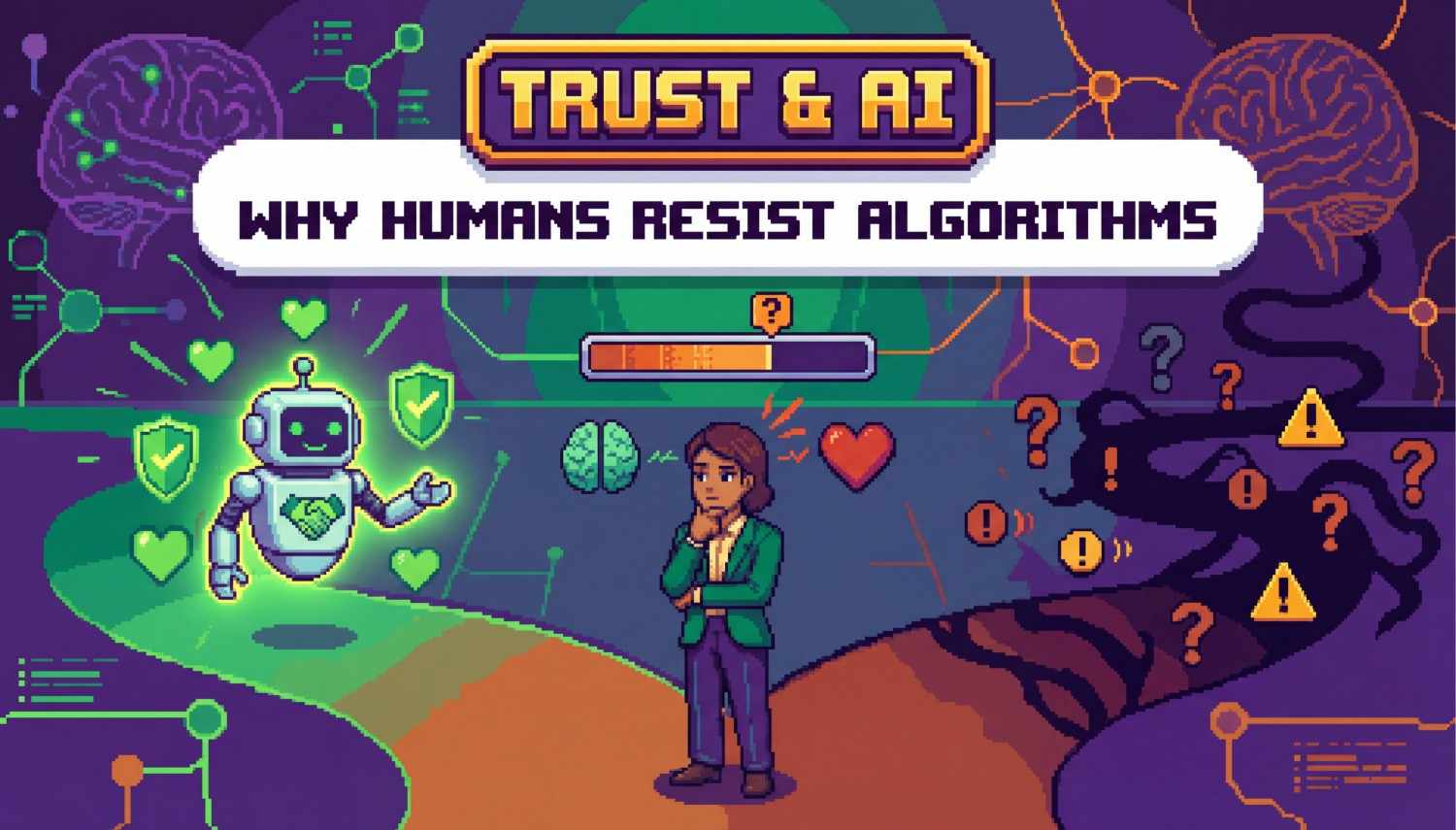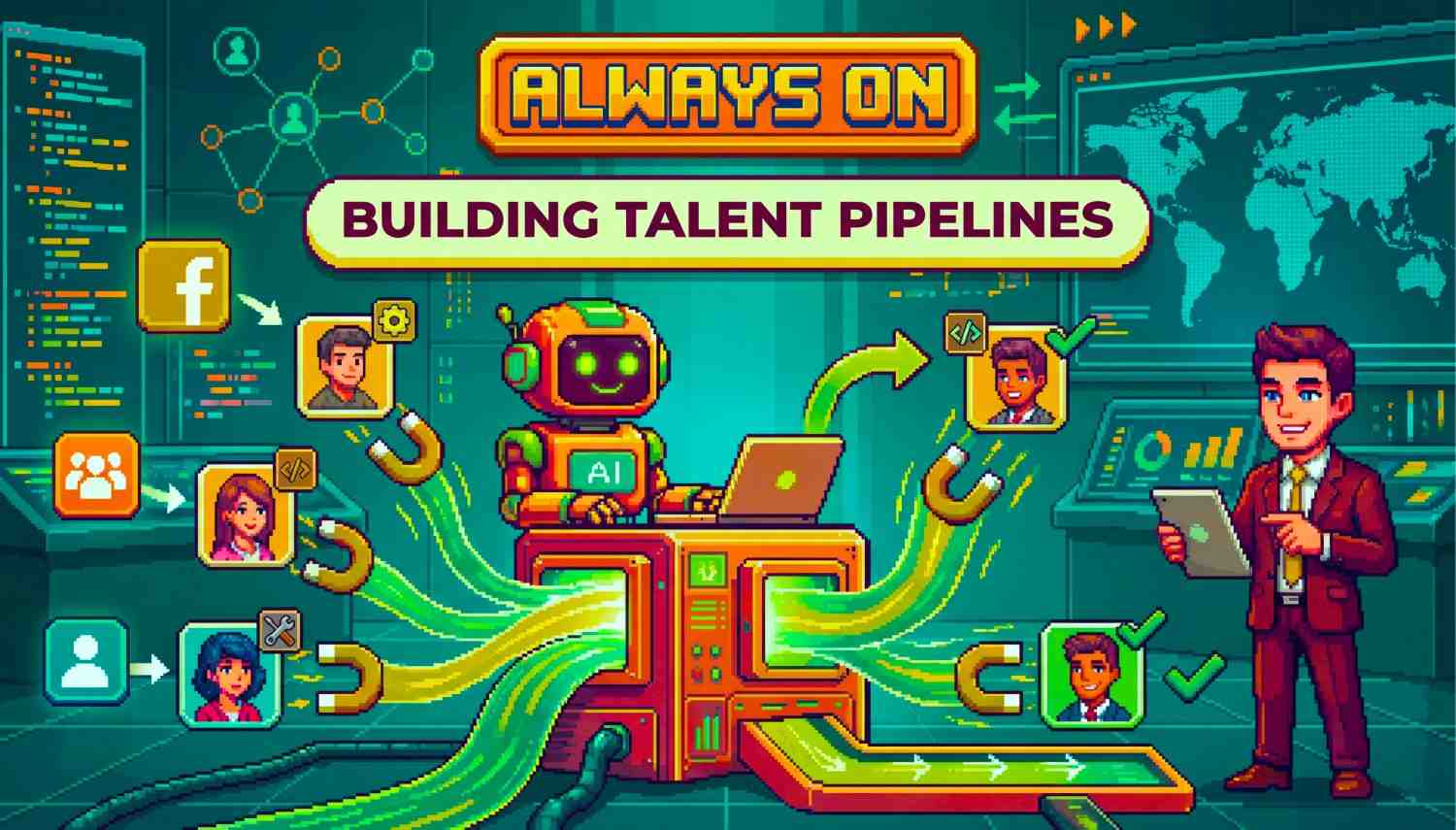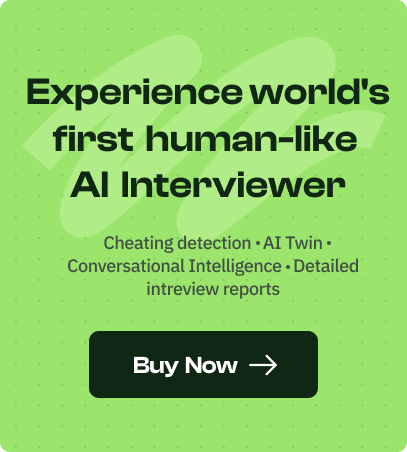AI in recruitment has already started to unfold, and it has become an essential asset in the talent acquisition landscape.
Imagine a world where predictive analysis can forecast hiring needs and virtual reality interviews simulate real-world job scenarios! Fascinating, isn't it?
AI recruitment will seamlessly match candidates to roles that align their skills, values, and career aspirations. It will build meaningful connections with candidates and foster a human-centric hiring experience.
As we step into this innovative era, AI recruitment will redefine talent, opportunity, and the future of work.
Artificial intelligence is transforming talent acquisition in an unimaginable way. AI recruiters are the future of talent acquisition. Let's explore the reasons why!
1. Enhanced Efficiency and Time Savings
AI recruiters optimize the hiring process efficiently. It also reduces time consumption without compromising accuracy.
In the traditional recruitment process, the HR team needs to run through resumes manually and conduct interviews. Whereas, AI recruitment agents like Hyring automate these tasks. Hundreds and thousands of interviews are conducted and evaluated within minutes, thus avoiding the use of human resources who, in turn, can focus on strategic activities.
This not only saves time but also ensures that no potential candidate is overlooked.
The next step is scheduling interviews. AI recruiters schedule interviews, send follow-up emails, and conduct initial screenings using chatbots. Manual screening requires sending back-and-forth emails, but using AI tools makes the task hassle-free.
By automating these repetitive tasks, AI recruitment paves the way for a smarter and faster future in talent acquisition.
A significant 44% of recruiters and 67% of hiring decision-makers emphasize that AI's primary advantage is its ability to save time in the recruitment process. Source
2. Reduced Bias in Hiring
Bias—sometimes conscious or unconscious—is a challenge in recruitment. Human recruitment sometimes favors candidates who share similar backgrounds, experiences, and personalities, leading to a lack of diversity in the work environment.
AI recruitment helps mitigate bias by focusing on objective factors like skills, qualifications, and performance.
Approximately 68% of recruiters believe that AI can eliminate unintentional bias in hiring processes. Source
3. Improved Candidate Matching
Finding the right candidate for a role is like searching for a specific algorithm in a set of data! AI recruiters are renowned for matching the proper candidate for the job opening. It selects the best-fit candidate by analyzing a vast amount of data.
AI-powered systems consider factors like skills, experience, career aspirations, and cultural fit. They predict candidates who are most likely to succeed in a given job role.
AI tools analyze the online presence of the candidate and collect a comprehensive understanding of their capabilities. It can assess soft skills by analyzing language patterns in written responses or video interviews. This evaluation helps in predicting the candidate's suitability for the job role and company culture.
Companies utilizing AI in their recruitment processes are 46% more likely to make successful hires compared to those that do not use AI. Source
4. Data-Driven Decision Making
Traditional recruitment is not always reliable, as decisions are sometimes derived based on intuition.
Whereas, in AI recruitment, the analysis is made based on patterns and trends. It analyzes historical data, performance metrics, and trends to provide insights that help make more informed decisions. The data-driven approach improves the quality of hires and reduces the risk of costly hiring mistakes.
AI tools provide real-time analytics like time-to-hire, cost-per-hire, and candidate satisfaction. To stay ahead in the competitive recruitment world, companies need to refine their recruitment strategies, for which these metrics play a vital role.
A study by Harvard Business Review found that organizations employing AI in their hiring processes are 46% more likely to make successful hires. This statistic emphasizes how AI's ability to analyze vast amounts of data contributes to better hiring decisions based on objective criteria rather than subjective opinions.
5. Enhanced Candidate Experience
In today's competitive hiring world, providing a rich candidate experience is difficult. An unsatisfactory hiring process can deter top talent and damage the reputation of the company. To make the hiring process hassle-free, AI recruiters enhance the candidate experience by making it faster, transparent, and personalized.
For example, AI chatbots offer instant responses to candidates and guide them through the application process. Personalization is achieved through these user-friendly platforms.
AI helps automate mundane administrative tasks, allowing recruiters to focus on more engaging aspects of the hiring process. About 45% of recruiters say AI assists in automating tasks, leading to a more streamlined experience for candidates. Source
Conclusion
AI recruitment optimizes talent acquisition by increasing efficiency, reducing bias, improving candidate alignment, and supporting data-driven decisions.
With advancements in AI recruitment technology, talent acquisition will expand significantly, making it an essential component of an organization's hiring strategy.


